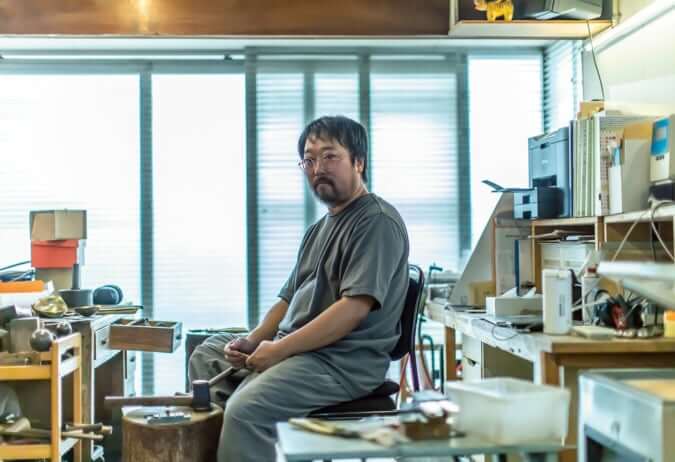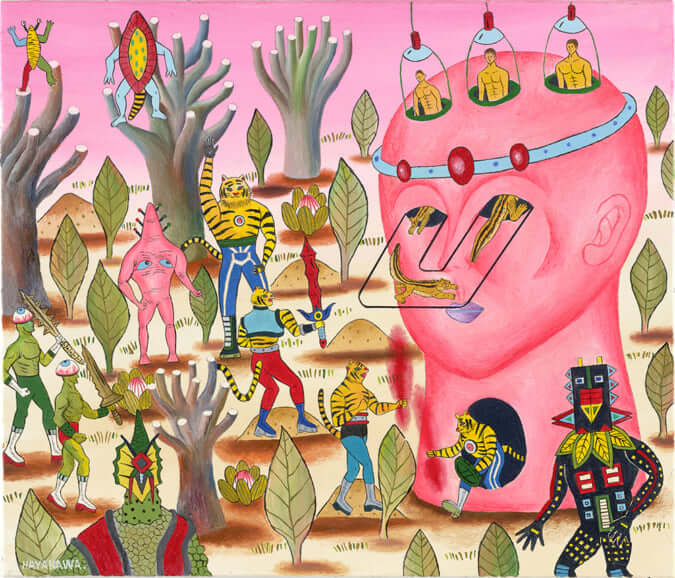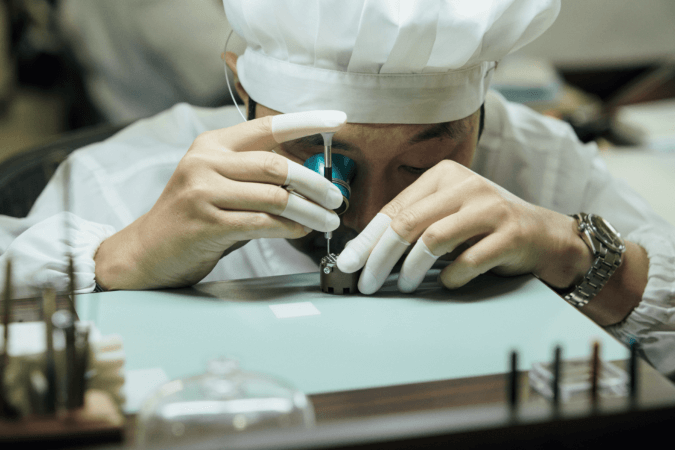A Supermarket of Sound: Tower Records
In Japan, a legendary international music retailer that spurred Tokyo’s urban subcultures continues to inform the identity of music lovers.

Tower Records Shibuya at its initial opening. Courtesy of Tower Records Japan.
Since the advent of discounted CDs in the 90s, Tower Records—previously a multinational empire in the record business that grew out of a former drugstore in Sacramento—began to suffer and eventually was forced to close its doors to millions of music fanatics around the world. Yet interestingly, 80-odd locations still exists in Japan, with a renewed shop standing in Shibuya as one of the biggest music retail outlets in the world. In fact, the famous slogan ‘No Music, No Life’ was originally invented by the Japanese.
There is a mixture of speculations as to why Tower Records remains intact as a lively hub for listeners in Japan. Walking into the renewed Shibuya store today, visitors are met with a spirit of discovery in exploring a vast, nine-storey supermarket of sounds. A cacophony of genres blasts from elaborate product displays, embedded with listening stations and music videos played on loop. With CDs enshrined across floors and endless aisles, one may easily forget the rest of the world, which has largely moved on to streaming services. A loyalty towards making the excitement of music tangible is undoubtedly still present in musical megastores like Tower Records, underscored by the role they have historically enjoyed as tastemakers of Tokyo’s sonic bubble.
Neon-Tinged J-Pop Hybrids
The expansion of Tower Records to Japan in the 1980s was initially perceived as a huge gamble—it was rare for an American retail company to open without any local partners. But the Californian-style mass marketing of foreign music, directly being imported on a large scale for the first time, was a hit for Japanese collectors often obsessed with possessing their own copies of American records. The opening of the Shibuya store lead to queues snaking around the corner for weeks.
More importantly, the arrival of such megastores contributed to a creative ecosystem of listeners, independent record shops, artists, and DJs that eventually came to signify Shibuya’s unique pop mentality. Tower Records was always involved firsthand in the crucial process of arranging unprecedented varieties of Western genres, creating a utopian microcosm where vastly different sounds were staged simultaneously.
By the time Tower Records decided to also introduce Japanese music into their catalogue, a new urban sensibility had already emerged. Embodied for instance in the ostentatious internationalism of Pizzicato Five, the wildly kitschy ‘Shibuya-kei’ aesthetic deconstructs a relentless range of pop influences, both from the West and from mainstream Japanese media, into a psychedelic glamour.
As the Tower Records Shibuya store still remains an emblem of Japanese musical fanaticism, a sonic shopping mall, it continues to inspire the special mindset of post-modern camp within its visitors.
Tower Records currently has 81 shops across Japan. Its renewed Shibuya store is located at 1 Chome-22-14 Jinnan, Shibuya City, Tokyo 150-0041, Japan.
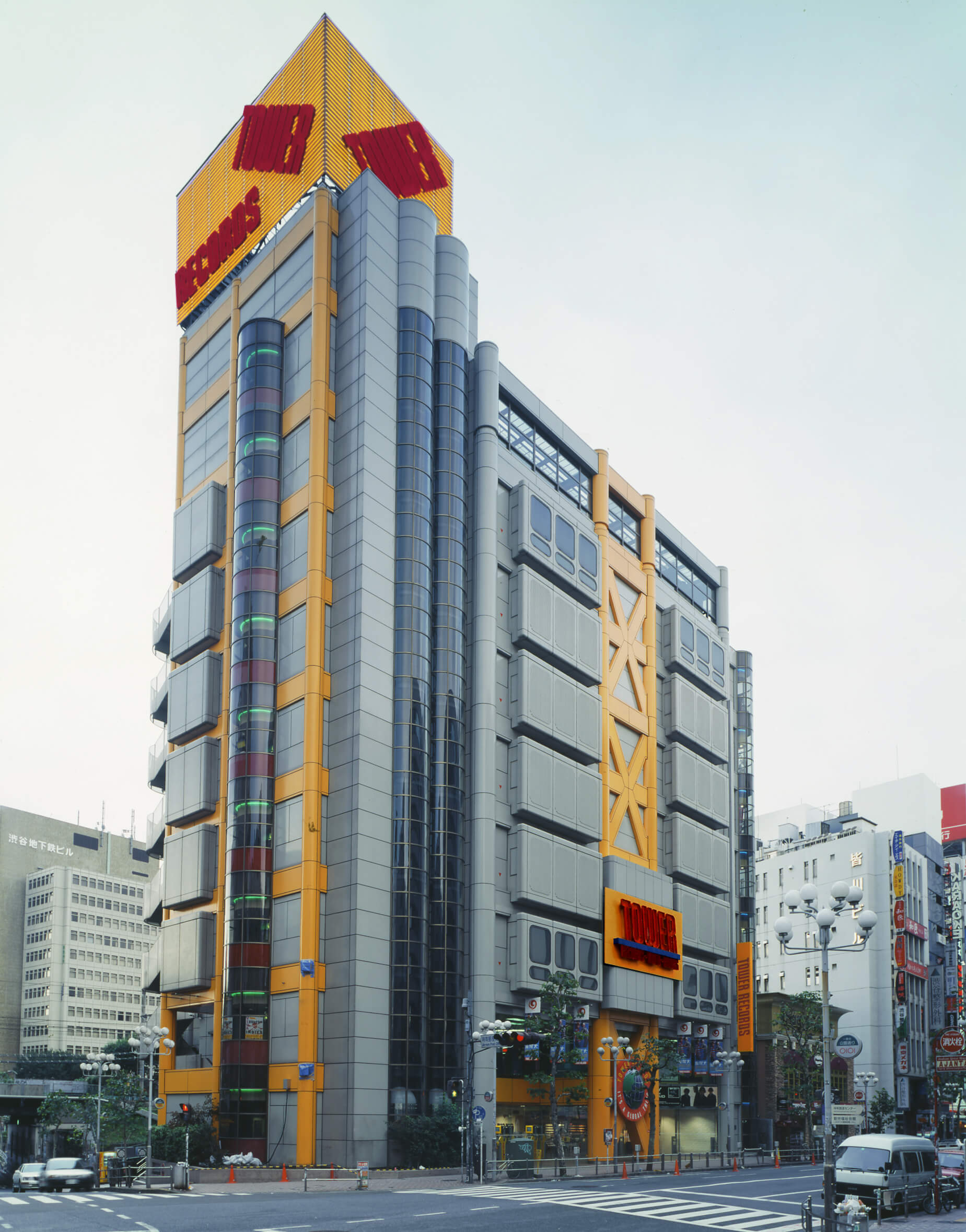
The iconic Tower Records Shibuya Building at its relocated 1995 opening. Courtesy of Tower Records Japan.
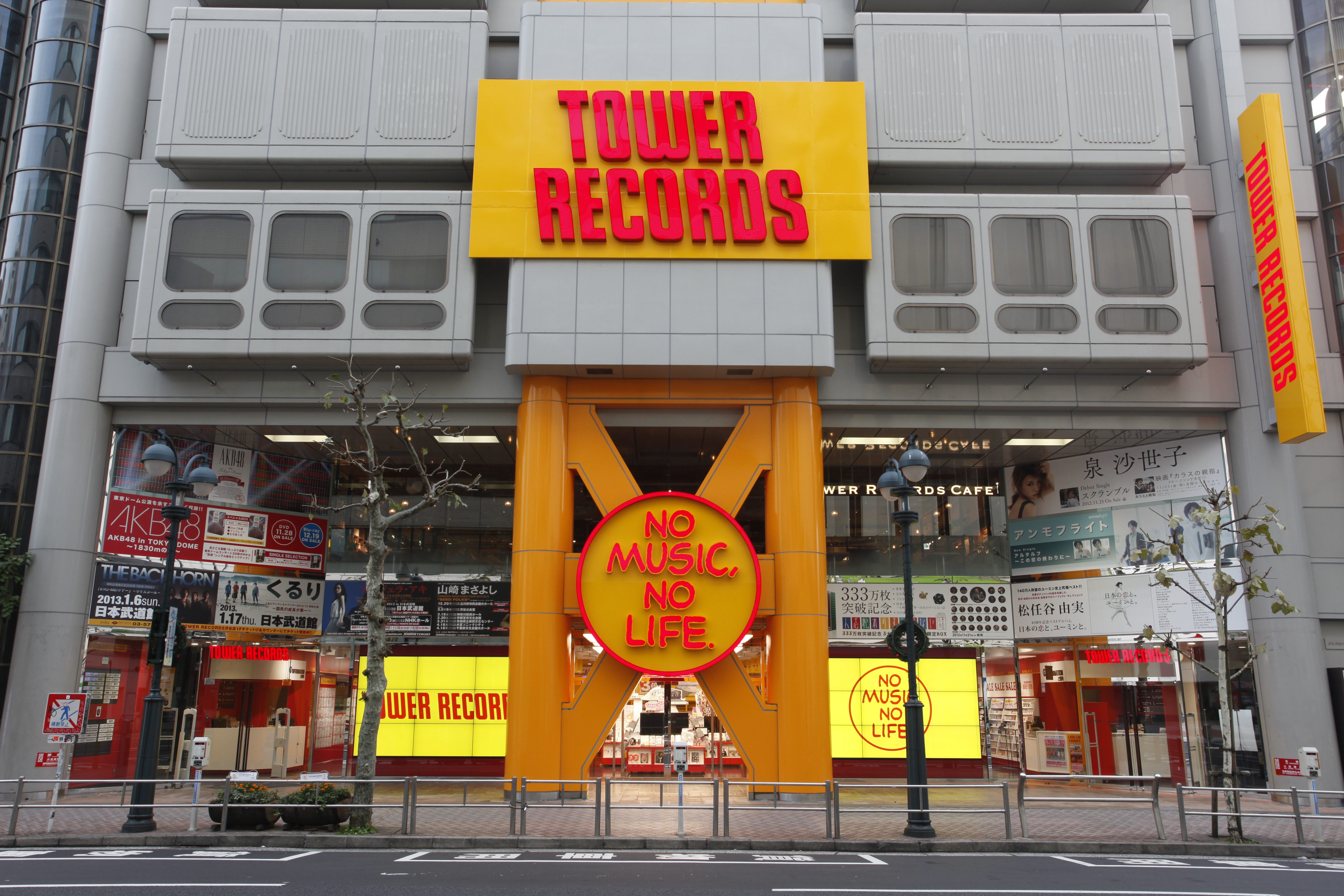
Tower Records Shibuya post-renewal. Courtesy of Tower Records Japan.
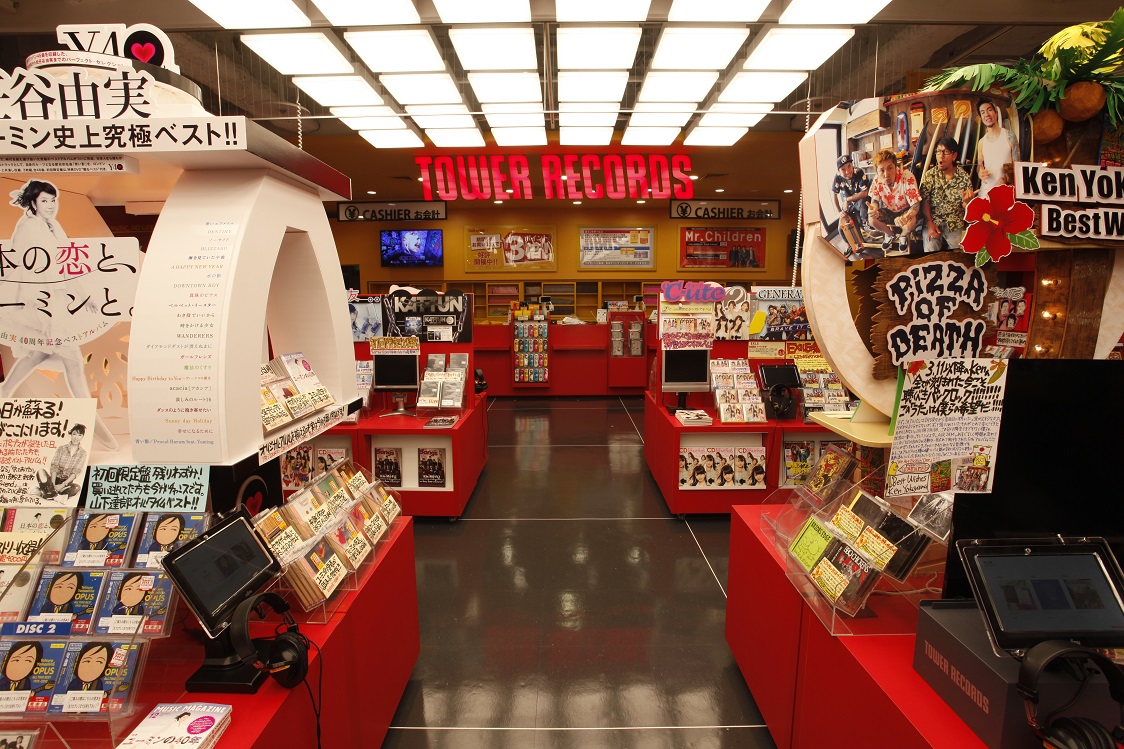
Tower Records Shibuya post-renewal interior. Photo courtesy of Tower Records Japan.
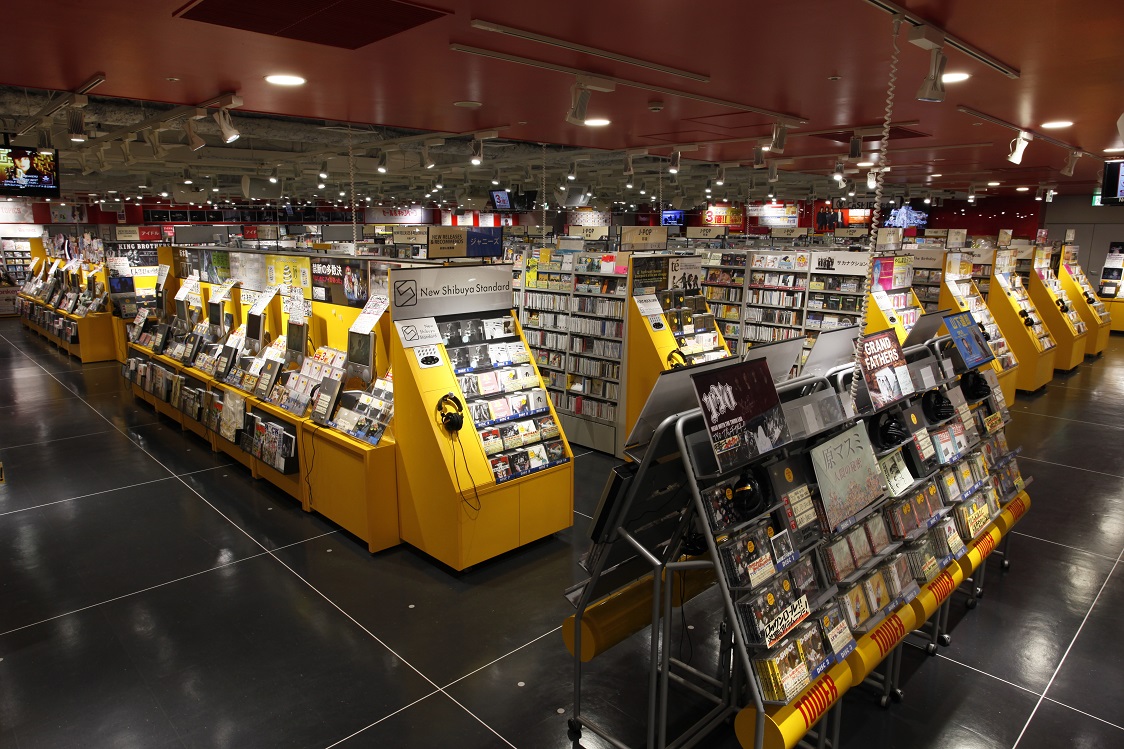
Tower Records Shibuya post-renewal interior. Photo courtesy of Tower Records Japan.
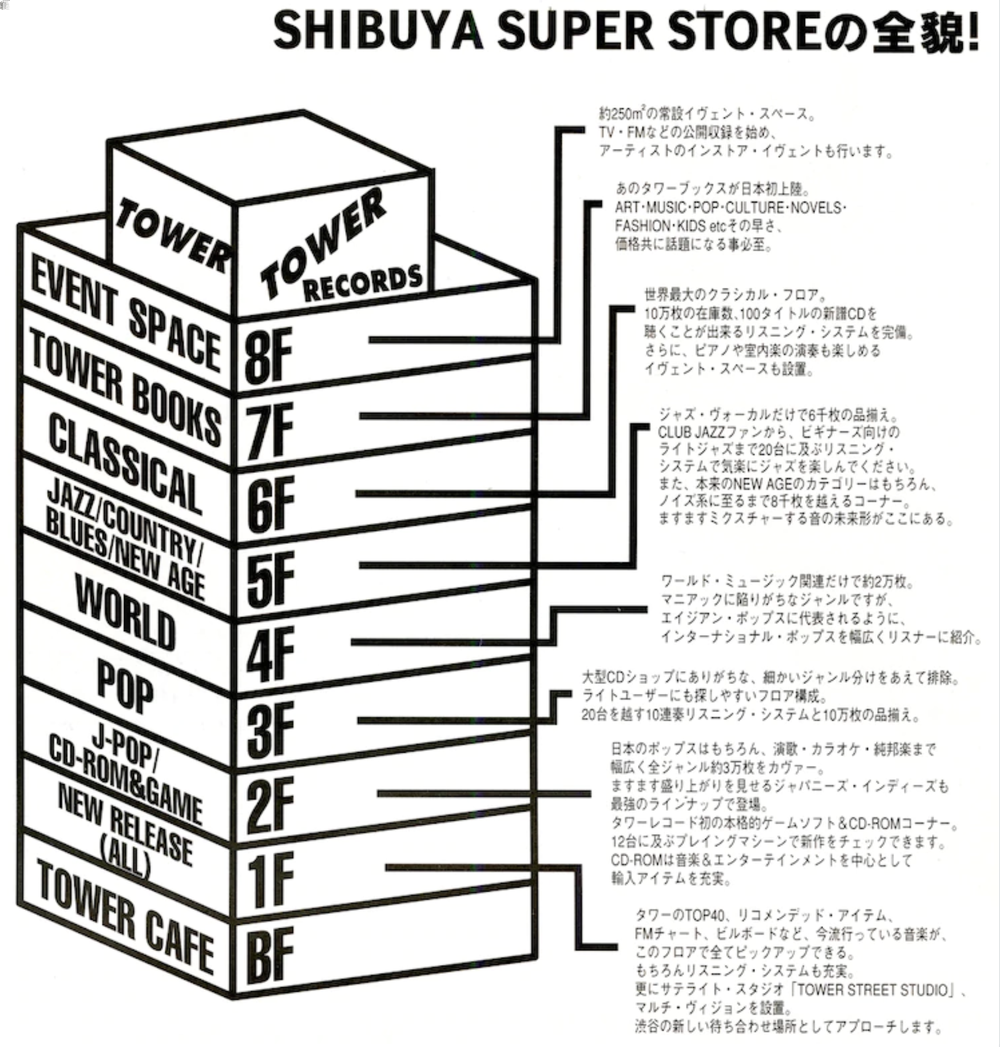
Previous floor map of the original Tower Records Shibuya as published in 1995 in 'bounce'. Courtesy of Tower Records Japan.
TRENDING
-
Paris, Tokyo: Robert Compagnon
With his co-chef and talented wife, Jessica Yang, Robert Compagnon opened one of the top new restaurants in Paris: Le Rigmarole.
 3:31
3:31 -
‘It’s a sincere pleasure when the objects I make are recognised as part of the Mingei circle’
The brass cutlery meticulously shaped by Ruka Kikuchi in his Setouchi studio has earned admirers across Japan and beyond.

-
Always Shooting, Never Shot: Motohiro Hayakawa’s Fantasy Battlegrounds
In these colourful and cluttered paintings, mysterious landscapes teem with aliens, monsters, and the occasional human.

-
Inside the Heart of Japanese Fine Watchmaking, A Visit to the Grand Seiko Manufacture
These refined pieces are made in a Kengo Kuma–designed building, set in a natural environment that inspired their signature dial motifs.

-
The Tattoos that Marked the Criminals of the Edo Period
Traditional tattoos were strong signifiers; murderers had head tattoos, while theft might result in an arm tattoo.


